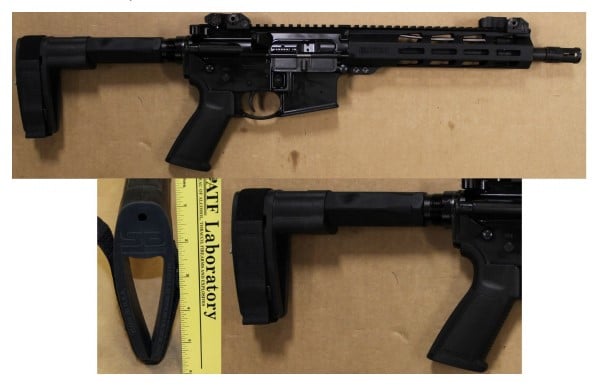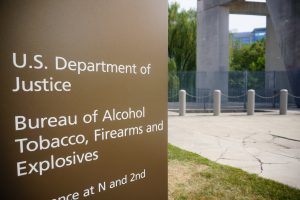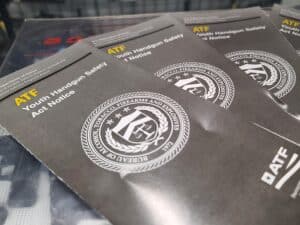Another federal court has cast doubt on the legality of one of President Biden’s unilateral attempts at implementing new gun restrictions.
United States District Judge Jane L. Boyle of the Northern District of Texas issued a preliminary injunction against the ATF’s ban on pistols equipped with stabilizing braces on Thursday in the case Second Amendment Foundation (SAF) v. ATF. Drawing on the injunction issued against the ban on Tuesday by a three-judge panel of the Fifth Circuit Court of Appeals, Boyle said similar concerns over administrative procedure and Second Amendment rights were at issue in the case before her court. She limited her injunction to just the plaintiffs in the lawsuit.
“Although the Fifth Circuit’s order limited relief to the plaintiffs in that case, the Court finds the same relief is appropriate here,” Boyle wrote in her order. “And while Plaintiffs raise some arguments that were not raised in Mock, the resolution of that appeal will almost certainly affect, if not control, the Court’s decision on Plaintiffs’ Motion. For these reasons, the Court GRANTS IN PART the Motion and issues a preliminary injunction as to Plaintiffs in this case only, pending resolution of the expedited appeal in Mock v. Garland.”
The ruling represents a bittersweet victory for gun-rights advocates who have fought to have the pistol brace ban tossed since the ATF finalized it earlier this year. While the injunction will provide a slight reprieve for the pistol brace-owning plaintiffs in the case ahead of the end of the ban’s amnesty period this month, its limited nature may leave millions of brace owners at risk of federal prosecution unless they register their braced firearms with the government beginning in June.
The lawsuits stem from President Joe Biden’s decision to try and reclassify guns equipped with pistol braces, which are designed to strap to a shooter’s forearm rather than be pressed against their shoulder, as short-barrel rifles or shotguns. The reclassification would put them under the jurisdiction of the National Firearms Act, which requires the guns to be taxed and registered with the ATF. The agency set June 1st as the deadline to submit tax-free registration. Anyone who owns a pistol-brace-equipped gun that falls under the rule and doesn’t register it could be charged with a federal felony.
President Biden used a similar rulemaking procedure to reclassify unfinished gun parts as firearms in another executive action that has since run into legal trouble. His “ghost gun” ban has also been enjoined by federal courts since it went into effect, though those injunctions have been limited in the same way the pistol brace blocks are.
Confusion over how far the new injunctions stretch prompted the Firearms Policy Coalition, the plaintiffs in the Fifth Circuit case, to request clarification from the court as to how many people are covered by the injunction it issued.
“Absent such clarification before the time when the Final Rule goes into effect, many persons interacting or residing with Appellants, as well as members and customers of the organizational Appellants, risk inadvertent violation of the Final Rule and potential prosecution, and Appellants themselves will be unsure of the scope of the relief provided and how they can act to mitigate their otherwise irreparable injuries,” FPC said in its motion for clarification.
As with the FPC case, the SAF case includes a gun-rights group and a gun company alongside several individual plaintiffs. Whether the injunctions extend to all the members of FPC and SAF as well as the customers of Maxim Defense and Rainier Arms will have a major impact on how many people are protected from prosecution as the cases move forward.
The courts’ interpretation of the plaintiffs covered by the injunction could have ramifications for the injunction issued in the Northern Texas case. Judge Boyle said she would not consider ruling on any additional claims against the ban until the Fifth Circuit panel concluded its expedited proceedings on the matter. Oral arguments in that case are not scheduled to take place until June 29, nearly a month after the amnesty period for brace owners will have ended.
Despite the ruling’s limited scope, gun-rights advocates still called Thursday’s order a “significant win.”
“We are pleased that the Court has preliminarily enjoined ATF’s brace ban before the effective date,” Adam Kraut, Executive Director of the Second Amendment Foundation (SAF), said in a press release. “SAF will continue to aggressively litigate this issue to prevent the erosion of constitutional rights and prevent administrative agencies from overstepping their authority.”
The ATF did not respond to a request for comment.






